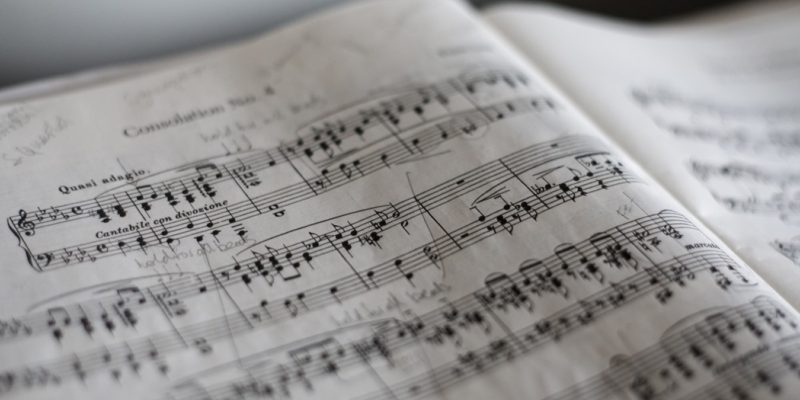
Researchers are discovering how music impacts the mind, serving to us to make sense of its actual emotional and social energy.
I nonetheless keep in mind after I first heard the track by Peter Gabriel, “Solsbury Hill.” One thing about that track—the lyrics, the melody, the bizarre 7/4 time signature—gave me chills. Even now, years later, it nonetheless could make me cry.
Who amongst us doesn’t have an analogous story a few track that touched us? Whether or not attending a live performance, listening to the radio, or singing within the bathe, there’s one thing about music that may fill us with emotion, from pleasure to disappointment.
Music impacts us in ways in which different sounds don’t, and for years now, scientists have been questioning why. Now they’re lastly starting to seek out some solutions. Utilizing fMRI know-how, they’re discovering why music can encourage such sturdy emotions and bind us so tightly to different folks.
“Music impacts deep emotional facilities within the mind, “ says Valorie Salimpoor, a neuroscientist at McGill College who research the mind on music. “A single sound tone will not be actually pleasurable in itself; but when these sounds are organized over time in some form of association, it’s amazingly highly effective.”
HOW MUSIC MAKES THE MIND COMPLETELY SATISFIED
How highly effective? In one of her studies, she and her colleagues connected individuals to an fMRI machine and recorded their mind exercise as they listened to a favourite piece of music. Throughout peak emotional moments within the songs recognized by the listeners, dopamine was launched within the nucleus accumbens, a construction deep throughout the older a part of our human mind.
“That’s a giant deal, as a result of dopamine is launched with organic rewards, like consuming and intercourse, for instance,” says Salimpoor. “It’s additionally launched with medicine which are very highly effective and addictive, like cocaine or amphetamines.”
There’s one other a part of the mind that seeps dopamine, particularly simply earlier than these peak emotional moments in a track: the caudate nucleus, which is concerned within the anticipation of enjoyment. Presumably, the anticipatory pleasure comes from familiarity with the track—you’ve gotten a reminiscence of the track you loved prior to now embedded in your mind, and also you anticipate the excessive factors which are coming. This pairing of anticipation and pleasure is a potent mixture, one that implies we’re biologically-driven to take heed to music we like.
However what occurs in our brains after we like one thing we haven’t heard earlier than? To search out out, Salimpoor once more connected folks to fMRI machines. However this time she had individuals take heed to unfamiliar songs, and he or she gave them some cash, instructing them to spend it on any music they preferred.Valorie Salimpoor, McGill College
When analyzing the mind scans of the individuals, she found that once they loved a brand new track sufficient to purchase it, dopamine was once more launched within the nucleus accumbens. However, she additionally discovered elevated interplay between the nucleus accumbens and better, cortical constructions of the mind concerned in sample recognition, musical reminiscence, and emotional processing.
This discovering steered to her that when folks take heed to unfamiliar music, their brains course of the sounds by means of reminiscence circuits, looking for recognizable patterns to assist them make predictions about the place the track is heading. If music is just too foreign-sounding, it will likely be exhausting to anticipate the track’s construction, and folks received’t prefer it—that means, no dopamine hit. However, if the music has some recognizable options—perhaps a well-known beat or melodic construction—folks will extra possible have the ability to anticipate the track’s emotional peaks and revel in it extra. The dopamine hit comes from having their predictions confirmed—or violated barely, in intriguing methods.
“It’s form of like a curler coaster experience,” she says, “the place you already know what’s going to occur, however you possibly can nonetheless be pleasantly shocked and revel in it.”
Salimpoor believes this mixture of anticipation and intense emotional launch might clarify why folks love music a lot, but have such various tastes in music—one’s style in music depends on the number of musical sounds and patterns heard and saved within the mind over the course of a lifetime. It’s why pop songs are, effectively, standard—their melodic constructions and rhythms are pretty predictable, even when the track is unfamiliar—and why jazz, with its difficult melodies and rhythms, is extra an acquired style. Alternatively, folks are inclined to tire of pop music extra readily than they do of jazz, for a similar motive—it could turn into too predictable.
Her findings additionally clarify why folks can hear the identical track over and over and nonetheless take pleasure in it. The emotional hit off of a well-known piece of music may be so intense, in reality, that it’s simply re-stimulated even years later.
“If I requested you to inform me a reminiscence from highschool, you’d have the ability to inform me a reminiscence,” says Salimpoor. “However, for those who listened to a bit of music from highschool, you’d truly really feel the feelings.”
HOW MUSIC SYNCHRONIZES BRAINS
Ed Giant, a music psychologist on the College of Connecticut, agrees that music releases highly effective feelings. His research take a look at how variations within the dynamics of music—slowing down or dashing up of rhythm, or softer and louder sounds inside a bit, for instance—resonate within the mind, affecting one’s enjoyment and emotional response.
In one study, Giant and colleagues had individuals take heed to one in all two variations on a Chopin piece: In model one, the piece was performed because it usually is, with dynamic variations, whereas in model two, the piece was performed mechanically, with out these variations. When the individuals listened to the 2 variations whereas hooked as much as an fMRI machine, their pleasure facilities lit up throughout dynamic moments within the model one track, however didn’t gentle up in model two. It was as if the track had misplaced its emotional resonance when it misplaced its dynamics, though the “melody” was the identical.Ed Giant, College of Connecticut© Peter Morenus/UConn Photograph
“In reality, after we debriefed the listeners after the experiment was over, they didn’t even acknowledge that we had been enjoying the identical piece of music,” says Giant.
When enjoying the extra dynamic model, Giant additionally noticed exercise within the listener’s mirror neurons —the neurons implicated in our potential to expertise internally what we observe externally. The neurons fired extra slowly with slower tempos, and quicker with quicker tempos, suggesting that mirror neurons might play an essential function in processing musical dynamics and affecting how we expertise music.
“Musical rhythms can instantly have an effect on your mind rhythms, and mind rhythms are liable for how you’re feeling at any given second,” says Giant.
That’s why when folks get collectively and listen to the identical music—resembling in a live performance corridor—it tends to make their brains synch up in rhythmic methods, inducing a shared emotional expertise, he says. Music works in a lot the identical method language works—utilizing a mix of sound and dynamic variations to impart a sure understanding within the listener.
“If I’m a performer and also you’re a listener, and what I’m enjoying actually strikes you, I’ve principally synchronized your mind rhythm with mine,” says Giant. “That’s how I talk with you.”
COMPLETELY DIFFERENT NOTES FOR VARIOUS PEOPLE
Different analysis on music helps Giant’s theories. In one study, neuroscientists launched totally different kinds of songs to folks and monitored mind exercise. They discovered that music impacts many facilities of the mind concurrently; however, considerably surprisingly, every model of music made its personal sample, with uptempo songs creating one form of sample, slower songs creating one other, lyrical songs creating one other, and so forth. Even when folks didn’t just like the songs or didn’t have a variety of musical experience, their brains nonetheless seemed surprisingly much like the brains of people that did.
But when our brains all synch up after we hear the identical fundamental dynamic variations in music, why don’t all of us reply with the identical pleasure?
Giant, like Salimpoor, says that this distinction in choice is because of how our neurons are wired collectively, which in flip relies on our personal, private historical past of listening to or performing music. Rhythm is all about predictability, he says, and our predictions about music begin forming from a reasonably early age onward. He factors to the work of Erin Hannon on the College of Nevada who discovered that infants as younger as 8 months outdated already tune into the rhythms of the music from their very own cultural atmosphere.










